Exploring Behavioral Health Services in Spokane
Trauma is one of the most silent yet pervasive challenges in today’s world. It can affect anyone, anywhere, often leaving a lasting impact on mental health. Defined as a deeply distressing or disturbing experience, trauma can result from events such as abuse, neglect, violence, accidents, or natural disasters. Sadly, it’s more common than many realize, impacting millions of people globally. But there’s hope. With the right support, individuals can overcome the effects of trauma and rebuild their lives. This blog explores the profound impact of trauma on mental health and how Behavioral Health Services in Spokane play a vital role in the healing process.
Understanding Trauma’s Effects on Mental Health
Trauma doesn’t just live in memory—it imprints deeply on the body and mind, shaping how a person navigates the world and interacts with others. It can disrupt vital aspects of life, including a person’s sense of safety, trust, self-esteem, and overall ability to function day-to-day. Trauma often alters how individuals perceive themselves and their relationships, creating barriers to emotional connection and growth. Left untreated, these effects can intensify over time, potentially leading to a range of mental health conditions, including anxiety, depression, PTSD, and more. Understanding and addressing trauma is key to fostering healing and resilience.
Emotional and Psychological Impacts
- Flashbacks & Nightmares
Trauma survivors may relive distressing events through involuntary flashbacks or vivid nightmares, which can occur without warning and feel overwhelming. These episodes often transport individuals back to the original moment of trauma, making the sensations, emotions, and fears as real and terrifying as they were during the actual experience. Flashbacks can happen during the day, triggered by certain sights, sounds, or smells, while nightmares can disrupt sleep, leaving survivors feeling exhausted and anxious. These intrusive experiences are a hallmark of conditions like PTSD and can significantly impact daily life and emotional well-being.
- Avoidance Behavior
To avoid triggering painful memories, individuals may actively steer clear of certain people, places, or situations that remind them of the trauma they experienced. While this avoidance can feel like a protective measure in the short term, over time it may significantly limit their quality of life, restricting their ability to engage in everyday activities, maintain relationships, or explore new opportunities.
- Hyperarousal
Constant vigilance, difficulty sleeping, or being easily startled are common signs of hyperarousal, a state in which individuals feel constantly on edge and unable to fully relax. This heightened state of awareness is often linked to stress or trauma and can make it challenging to focus, rest, or feel at ease in everyday situations. Over time, hyperarousal can significantly impact both mental and physical well-being if not addressed.
- Negative Emotion Regulation
Mood swings, uncontrollable anger, or overwhelming sadness are often linked to emotional dysregulation, a common response to the lasting effects of trauma. This occurs when the brain struggles to manage emotional responses, making it difficult to cope with triggers or stress in a healthy way. Over time, these intense emotions may feel unpredictable or hard to control, impacting relationships, decision-making, and overall well-being.
- Feelings of Guilt or Shame
Many people experience persistent guilt or shame after a traumatic event, often believing they are at fault for what happened or that they could have somehow prevented it. These feelings, though common, can be overwhelming and may stem from the false notion that they had more control over the situation than they actually did.
Impacts on Daily Life
These emotional burdens disrupt every aspect of an individual’s existence, affecting their personal relationships, professional life, mental well-being, and overall ability to navigate daily challenges.
- Building and nurturing strong, meaningful relationships with loved ones, including family members and close friends, by spending quality time together, showing appreciation, and offering support during both good times and challenges.
- Performance at work or school, including productivity, focus, the ability to meet deadlines, and overall achievement in tasks or academic goals
- Physical health and well-being, including maintaining an active lifestyle through regular movement such as walking, jogging, or engaging in sports, proper nutrition by consuming a balanced diet rich in fruits, vegetables, proteins, and whole grains, regular exercise to build strength and endurance, and ensuring adequate sleep for recovery and mental clarity, all of which contribute to overall fitness, vitality, and a higher quality of life.
- Overall ability to function effectively in society, including managing daily responsibilities such as work, school, and personal tasks, building and maintaining healthy relationships with others, and actively contributing to the well-being and growth of the community through meaningful participation.
The Role of Behavioral Health Services in Spokane
No one should have to bear the weight of trauma alone. Behavioral Health Services in Spokane are dedicated to providing innovative, compassionate care to individuals in need. Their expert team of professionals offers support and guidance in a safe, non-judgmental environment, helping people navigate the challenges of trauma and mental health issues. Whether you’re seeking help for yourself or someone you love, trauma survivors can find hope and healing through a variety of treatment options available in the Spokane area, including counseling, therapy groups, and personalized recovery plans designed to rebuild lives.
1. Trauma-Informed Care
Many behavioral health providers in Spokane integrate trauma-informed care into their practice to better support individuals who have experienced difficult or harmful events. This specialized approach focuses on creating a safe and supportive environment, recognizing the widespread impact of trauma, and tailoring care to meet the unique needs of each individual. By adopting this method, providers aim to foster trust, promote healing, and empower clients on their path to recovery.
- Acknowledges the profound and lasting impact of trauma on mental health, including its effects on emotional well-being, behavior, relationships, physical health, and overall quality of life. Trauma can influence how individuals cope with stress, form connections, and navigate daily challenges, often requiring long-term support and healing.
- Prioritizes trust and safety in the therapeutic relationship, creating a supportive and non-judgmental environment where clients feel comfortable sharing their thoughts, emotions, and experiences openly. This approach fosters a sense of security and respect, allowing clients to explore their challenges at their own pace without fear of criticism or judgment.
- Provides personalized support tailored to meet the unique needs and circumstances of each individual, ensuring that the approach is not only effective but also compassionate. Special care is taken to create a safe and respectful environment that avoids retraumatizing individuals, offering them the understanding and sensitivity they need throughout the process.
This framework fosters an empathic environment where healing can begin.
2. One-on-One Therapy
Individual therapy provides a safe space for survivors to unpack and process their trauma at a pace that feels comfortable and manageable for them. It offers personalized support, helping individuals regain a sense of control and build coping strategies tailored to their unique experiences. Spokane’s behavioral health professionals specialize in using evidence-based approaches like cognitive-behavioral therapy (CBT), trauma-focused therapy, and mindfulness techniques to promote healing and resilience.
- Cognitive Behavioral Therapy (CBT) to help identify and address negative thought patterns, replacing them with healthier, more constructive ways of thinking and coping with challenges
- Eye Movement Desensitization and Reprocessing (EMDR) is a therapeutic approach designed to help individuals reduce symptoms of PTSD by processing traumatic memories. It uses guided eye movements or other forms of bilateral stimulation to help reframe how these memories are stored in the brain, ultimately reducing their emotional impact.
- Dialectical Behavior Therapy (DBT) is a structured and evidence-based approach designed to help individuals regulate intense emotions, build healthier coping mechanisms, and improve interpersonal relationships.
Clients receive tools to manage symptoms, build resilience, and regain personal agency.
3. Group Therapy
Healing thrives in shared understanding, and group therapy provides a powerful space for connection and growth. It brings together individuals who’ve experienced similar traumas, creating a supportive community where participants can feel seen and understood. This sense of belonging helps to reduce feelings of isolation and loneliness, which are often barriers to recovery. By sharing their stories and listening to the journeys of others, participants not only find strength but also gain new perspectives, coping tools, and the courage to reclaim their voice. Group therapy reminds individuals that they are not alone and that healing is a journey best traveled together.

4. Medication Management
Severe trauma symptoms, such as debilitating anxiety, major depressive episodes, or persistent feelings of hopelessness, may require medical intervention to support recovery. In such cases, behavioral health psychiatrists in Spokane play a pivotal role in addressing these challenges. They carefully evaluate each individual’s unique needs, considering their medical history, current symptoms, and overall mental health goals. By working collaboratively with patients and other providers, they create personalized medication plans designed to complement therapeutic efforts like counseling or other behavioral therapies. This holistic approach helps ensure that individuals receive comprehensive care tailored to their journey toward healing and improved well-being.
5. Holistic and Creative Approaches
Spokane doesn’t stop at traditional therapies—it also embraces holistic healing to support overall well-being. These behavioral health services in Spokane may include practices such as massage therapy, acupuncture, yoga, meditation, and nutritional counseling, offering a comprehensive approach to health that nourishes both the body and mind.
- Mindfulness practices for grounding, reducing stress, and improving focus through techniques like deep breathing, meditation, and body awareness exercises
- Yoga or movement therapy to strengthen the mind-body connection, improve flexibility, reduce stress, and promote overall mental and physical well-being
- Art or music therapy provides creative outlets for emotional processing, helping individuals express feelings they may struggle to put into words and fostering a sense of relief and self-discovery through artistic or musical expression.
- Equine therapy to foster trust, improve emotional regulation, and build a deeper connection through guided interactions with horses
These approaches enhance well-being alongside standard treatments, promoting a fuller recovery.
Why It’s Important to Address Trauma
Combatting trauma isn’t just an individual effort—it requires collective action from the entire community. Trauma, when left untreated or unrecognized, can have far-reaching consequences, feeding cycles of poverty, violence, and systemic inequality that affect entire families and neighborhoods. The emotional and psychological wounds often go unnoticed, perpetuating a cycle that can seem impossible to break. However, by reducing the stigma surrounding mental health, increasing access to affordable and effective behavioral health services in Spokane and providing consistent support for trauma survivors, Spokane’s community can take steps toward breaking these cycles and fostering a safer, more compassionate environment for everyone. Behavioral health providers in Spokane are at the forefront of this change, working tirelessly to help individuals and families heal. These professionals, armed with experience, empathy, and evidence-based practices, provide the tools and support necessary for recovery and growth.
Steps You Can Take Today
If you’ve experienced trauma or know someone who has, don’t wait to seek help. Behavioral health services in Spokane are ready to guide you on the path to healing. Here’s what you can do now:
- Reach out – Take the first step by scheduling an appointment with a qualified therapist or counselor. Whether it’s for general support or to address specific challenges, connecting with a professional can provide guidance and a safe space to talk.
- Learn more – Dive into trauma education resources to better understand its impact and how to provide support effectively.
- Take a small step – Joining a support group can connect you with others who share similar experiences and provide encouragement. Practicing mindfulness, like deep breathing or meditation, can help you stay grounded and reduce stress, making it a great way to start your journey.
- Be an advocate – Take an active role in spreading awareness by sharing this information with others. By starting conversations and promoting understanding, you can help de-stigmatize trauma and mental health discussions, creating a more supportive and compassionate environment for those who may be struggling.
Healing is possible, and with the right support, you can move toward a brighter future.
Conclusion
In conclusion, trauma is a complex and widespread issue that affects not only individuals but entire communities. With the help of behavioral health providers in Spokane, people can find the support and resources necessary to heal from past traumas and move towards a brighter future. Through evidence-based therapies, medication management, holistic approaches, and collective action towards destigmatizing mental health discussions, we can break the cycles of trauma and create a more compassionate environment for all. It is important to take proactive steps towards addressing trauma such as reaching out for help, educating ourselves on its impact, taking small steps towards healing, and advocating for awareness within our communities. Together, we can make positive changes one person at a time and work towards a healthier, happier Spokane. Remember, healing is possible and help is available. Don’t wait to seek support and take the first step towards your journey of recovery today by calling us at 1 (509) 927-6838 or clicking Breakthrough Recovery Group. So let us come together as a community to promote understanding, support and healing for all those who have experienced trauma.





